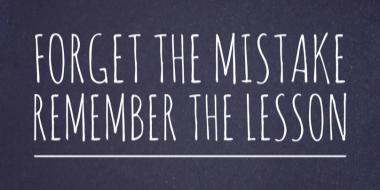100 + hard skills to include on your resume (with examples)
Want to make your resume stand out fast? Highlighting the right hard skills for resumes can instantly show employers that you have what it takes to be successful. But exactly what are hard skills on a resume, and how can you present them in a way that grabs attention?

In this guide, you’ll find:
- How to showcase your hard skills correctly to grab recruiter's attention.
- A comprehensive hard skills list organized by category.
- Options for all sorts of different roles and industries, from healthcare and management to data and tech.
The right list of hard skills can take your resume to the next level. Take a closer look at how to identify what hard skills to put on a resume and how to tailor them to a job description.
What are hard skills?
Let's start by defining what hard skills are first. Hard skills are abilities or job-specific skills that are easily defined and measured. They are obtained through your education, certification or training courses, and work experience. Hard skills might include specific technical skills like HTML coding or more general expertise like project management. Desired hard skills are usually listed in the ‘requirements’ section of a job posting, although some soft skills may be included there as well.
So should you include common hard skills on your resume? For almost everyone, including hard skills on your resume will be beneficial. In fact, 98.7% of HR professionals value quantifiable achievements in resumes (1). Listing your hard skills is a way to show that you read the job description, you are qualified for the position, and you recognize your own value.
Highlighting hard skills under each of your past positions allows you to demonstrate the development and improvement of your skills over time - something that’s always desirable to potential employers!
Hard skills vs. soft skills
Hard skills are measurable and job-specific; common hard skills examples include coding or accounting. Soft skills are more difficult to define or measure, but they can certainly impact how you operate in a professional workplace. Including both soft and hard skills on your resume can help potential employers get a better idea of who you are as a person.
Reviewing some examples of hard skills can help you better differentiate them from soft skills. Check out some resume examples for inspiration.
Examples of hard skills to put on your resume
Here are some examples of hard skills to add to your resume, grouped by category:
Technical skills
Specialized skills in industries like IT, science, and engineering are often considered to be technical skills. These hard skills usually involve the ability to use some kind of job-specific software or equipment
- Lean manufacturing
- CAD skills
- Linear regression
- Prototyping
- Workflow development
- STEM skills
- HTML, CSS, or Javascript
- Swift, Python, Perl, XML
- SAS, MySQL, Apache
- Payment processing
- Automated billing systems
- CRM platforms
- Research skills
- Troubleshooting abilities
- Encryption
- Risk assessment
- Blockchain
- Machine learning
General computer skills
Basic computer skills are almost ubiquitous at this point, but it can still be worth pointing out your hard computer skills, especially if the job posting mentions them.
- Microsoft Office Suite
- Google Drive Suite
- Adobe Suite
- WordPress
- Typing
- Quickbooks
- Database management
Data analysis skills
Data analysis skills are desirable in a wide variety of industries and including them on your resume can indicate that you are skilled at eliminating wasteful practices and saving companies money and time.
- Data mining
- Data engineering
- Database management
- Data visualization
- Web analytics
- Research skills
- Resource management
- Diagnostics
Marketing skills
Marketing is an enormous industry, since almost all companies in the world engage in some form of marketing. Marketing skills are generally always appreciated, even if the job you are applying for doesn’t directly relate to marketing — successful marketing means more revenue for the company. Especially with the rise of ecommerce, digital marketing skills have been in especially high demand
- Search engine marketing (SEM)
- Social media
- Google Analytics
- Google Search Console
- Keyword research skills
- Pay per click (PPC) marketing
- Email marketing
- Mailchimp
- A/B testing
- Copywriting
- Sales funnel creation
- Marketing campaign management
Management skills
Industries like healthcare, construction, and IT often rely heavily on management, so possessing and listing any of these skills can give you a leg up.
- Risk management skills
- Strategic planning
- Budgeting
- Hiring
- Staff management
- Scheduling
- Logistics
- Time management
- Negotiating
- Office management skills
Communication skills
Communication skills are useful for almost any position, whether you’ll be producing written content or orally communicating.
- Copywriting
- Note-taking
- Email writing
- Speaking multiple languages
- Translation
- Localization
- Editing and proofreading
- Reporting
- Word processing
- Digital forms of communication
- Transcription
- Grant writing
- Proposal writing
- Storyboarding
- Investigative journalism
- Content management
Design and presentation skills
Professional design work requires many hard skills, including both creating the designs and presenting them effectively to clients.
- User experience (UX) design
- User interface (UI) design
- Adobe Creative Suite
- Dreamweaver
- Figma
- Sketch
- InVision
- Final Cut Pro
- Typography
- Zeppelin
- Print design
- Slide deck creation
- Photo composition
- Color correction
IT and programming skills
IT and programming-related hard skills include the following:
- HTML, CSS, JavaScript
- Python, R, Swift, C++
- Amazon Web Services (AWS)
- Azure
- Google Cloud
- Database management
- Network administration
- Cybersecurity and encryption
- Machine learning and AI
- Blockchain and smart contracts
Data and AI
Here are some examples of hard skills for resumes to help you land a programming or data-centric role:
- Data analysis and visualization
- Data mining and engineering
- Statistical modeling and regression analysis
- Natural language processing (NLP)
- Predictive analytics
- Python libraries
Cloud computing
Good hard skills for resumes in the cloud computing space include:
- AWS
- Microsoft Azure
- Google Cloud Platform (GCP)
- Cloud cost optimization
- Virtualization and containerization
Financial and business analysis skills
Need to know what hard skills to put on resumes for finance and business analysis roles? Here are some options to consider:
- Budgeting and forecasting
- Financial modeling
- Risk management
- Auditing and compliance
- Business process improvement
- KPI tracking and reporting
Healthcare skills
Top hard skills employers look for in healthcare include the following:Patient assessment and triage
- Medication administration
- Electronic health records (EHR)
- Infection control
- Diagnostic equipment operation
- HIPAA compliance
Construction and trade skills
The best hard skills to learn and list for the trade industries include:
- Blueprint reading
- Electrical systems
- HVAC maintenance
- Welding and fabrication
- Project estimation
- Safety compliance
Education and training skills
Education-related skills you may want to add to your resume include the following:
- Curriculum development
- Lesson planning
- Student assessment
- Classroom management
- Online learning tools
Management and leadership skills
If you possess leadership and management talents, add them to your resume and reinforce them in your cover letter. Top hard skills for this space include:
- Strategic planning
- Project management
- Resource allocation
- Staff supervision
- Operations management
Communication and writing skills
Here’s how to list hard skills on resumes for writing and communication-oriented roles, as well as what to include:
- Copywriting
- Technical writing
- Presentation design
- Translation and localization
- Grant and proposal writing
Jobseeker’s resume builder helps you format your hard skills to list on resumes in a way that’s engaging and skimmable. You can find plenty of other resources to help you stand out in the hiring process as well, such as cover letter templates and examples. Get hired with Jobseeker.
How to add hard skills to your resume
Now that you’ve had a chance to review the definition of hard skills as well as some examples, here are some tips for how to incorporate your hard skills into your resume:
1. Identify hard skills that the employer is looking for
Identify which hard skills the employer desires by reviewing the job posting carefully, paying special attention to anything listed under the ‘Requirements’ section. Many employers will explicitly say exactly which hard skills they are looking for.
Of course, you should only add these hard skills to your resume if you actually have them, and be mindful not to copy their requirements exactly. Be prepared to physically demonstrate certain skills to an employer in an interview.
Expert Tip
Whenever possible, explain your skills in terms of the impact you have created for a company and give quantifiable results. Include numbers, percentages, and hard data to impress potential employers and show them that you truly possess each skill.
2. Highlight your hard skills in your work experience resume section
If you opt for the standard reverse chronological resume format, you’ll want to highlight your hard skills in your work experience section, placing each skill under the job title where you developed or honed it.
Highlighting hard skills under each of your past positions allows you to demonstrate the development and improvement of your skills over time - something that’s always desirable to potential employers!
3. Consider placing your skills at the top of your resume
If your skills and qualifications are more of a focal point than your work history, consider using the functional resume format. With this style of resume, your skills are placed above your work experience.
You can also highlight your hard skills at the top of a reverse chronological resume by including them in your resume headline or resume summary statement.
4. Back up your skills with certifications
The best way to validate your hard skills is to include any relevant certifications that you may have in a separate resume section. Include the name of the certification, the organization or institution that certified you, and the year that you earned it. Including certifications reinforces your hard skills and gives your employer a frame of reference regarding just how proficient you are with those skills. Such as:
- Certified public accountant
- Project Management Professional
- AWS Certified Solutions Architect
- Registered nurse
- Google Analytics Certification
You can see the different ways you can present your hard skills in the resume examples with different designs below:
How to tailor your hard skills to the job description
The best resumes are customized for every application. To tailor your hard skills for resume success, start by studying the employer’s job posting.
For example, imagine that you come across a marketing job posting that reads, “Looking for candidates experienced in SEO, keyword research, and Google Analytics to improve website traffic.”
You would want to reflect some of these phrases or tools directly in your skills section, like:
- Keyword research on Ahrefs
- Semrush
- Google Analytics
- Digital campaign optimization
Aligning your skills with the job description helps your resume pass Applicant Tracking Systems and shows recruiters you’re a great fit.
Make sure to look over some resume and cover letter examples to get a better idea of how to showcase hard skills across both documents. Remember, they are supposed to complement one another, not repeat the same information.
How to improve your hard skills
If you want to brush up on your hard skills or gain new ones, there are a few different routes you can take. Here are some options:
- Regular Practice: Continue sharpening hard skills that you already possess to gain an edge in a competitive market
- Ask for Feedback: Seek input from mentors or peers who excel in the skill area, as their perspective can help you find and fix blind spots
- Classes and Courses: Enroll in online or in-person classes to stay current with evolving tools and best practices
- Continued Education: Pursue advanced degrees or specialized certifications to expand your expertise
Want to learn more about what employers are looking for and how you can capitalize on the latest hiring trends? Check out HR statistics and trends from Jobseeker to get started.
Which industries and job positions require hard skills on a resume?
Every job requires a mix of hard and soft skills. However, some industries rely more heavily on technical expertise. Here are examples:
- Technology: Software engineer, data analyst, or network administrator
- Healthcare: Registered nurse, medical technician, or physical therapist
- Finance: Accountant, financial analyst, or auditor
- Construction and Trades: Electrician, project foreman, or civil engineer
- Education: Teacher or academic advisor
- Marketing: SEO specialist, copywriter, or digital marketing manager
- Manufacturing: Process engineer, quality control analyst, or production supervisor
Hiring managers who are filling these roles typically prioritize quantifiable hard skills that demonstrate you can perform job-critical tasks. Take advantage of resume and cover letter templates so that you can easily highlight the right information in your job application documents.
Key takeaways
Adding hard skills on your resume is a key way to show potential employers that you are qualified for the job. Match your resume skill set to those listed in the job posting, using keywords from the ‘Requirements’ section as your guide. Mention your skills throughout your resume for the most impact - in your resume headline, resume summary, skills section, work experience section, and certifications section if applicable. Finally, be sure to frame each skill in terms of how you used it to benefit your previous employers and give quantified results whenever you can.
Need help crafting an eye-catching resume that includes your hard skills? Jobseeker offers an easy-to-use resume builder tool - simply enter your details and then switch between resume templates, styles, and color schemes with just a few clicks. Once you’ve perfected your resume, download it instantly so you can start applying for jobs right away!
FAQ
The hard skills an employer looks for will vary based on the nature of the role. Common in-demand hard skills include project management, cloud computing, and data analysis. However, it’s important to focus on the scope of the role and the industry you work in.
Aim for 6 to 10 of your strongest skills. Focus on abilities that are most relevant to the job. Listing too many can dilute the impact of the skills.
If you have the room, separate them into distinct hard and soft skills sections. That way, recruiters can easily skim your document and identify the most appealing or relevant abilities.
Yes. Listing a few certifications can reinforce your expertise and show proof of your competency in other areas. It’s especially useful if you work in a regulated industry.
Mention one or two key hard skill examples from your resume and describe how they’ve helped you achieve measurable results. Need help? Try our Cover Letter Builder to match your resume perfectly.
Use the situation, task, action, and result (STAR) method to describe how you applied each skill to solve a real-world challenge. Bring in specific outcomes and data when possible.
Sources:
(1) Jobseeker Report: 2025 Hiring Trends: What 1000+ HR Professionals Really Want in a Candidate
Impress potential employers with your resume
Follow step-by-step professional guidance to create a polished resume in minutes.






